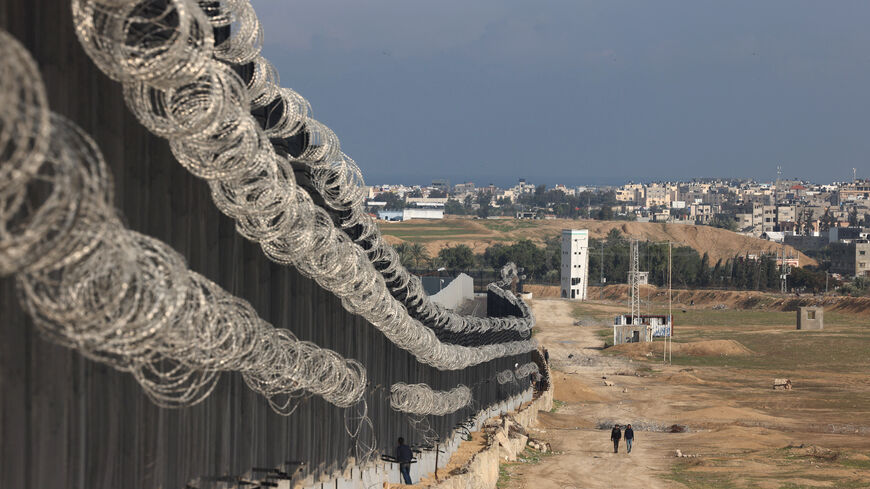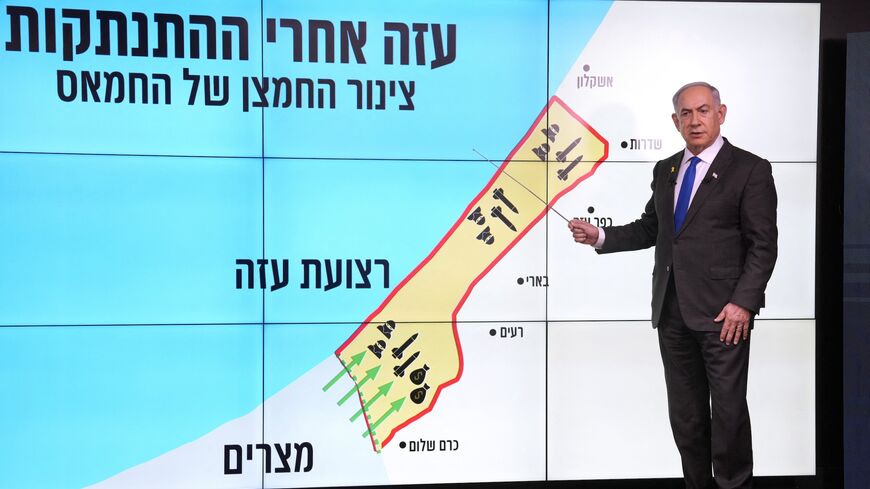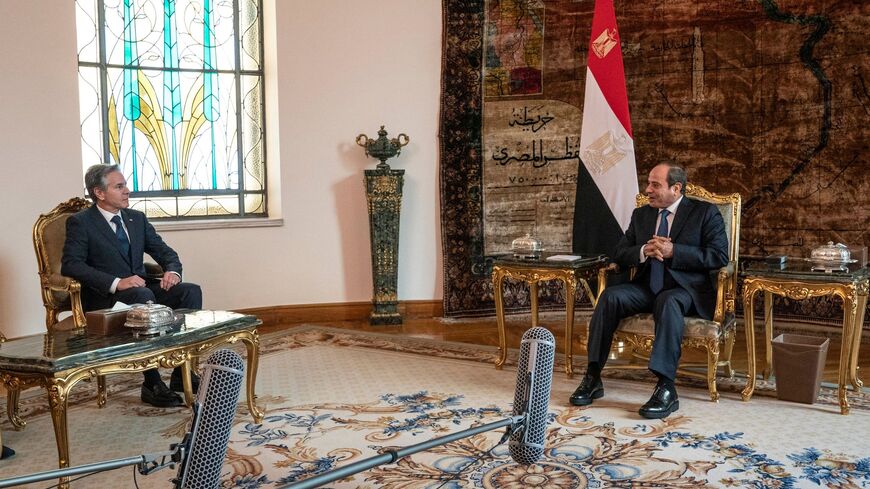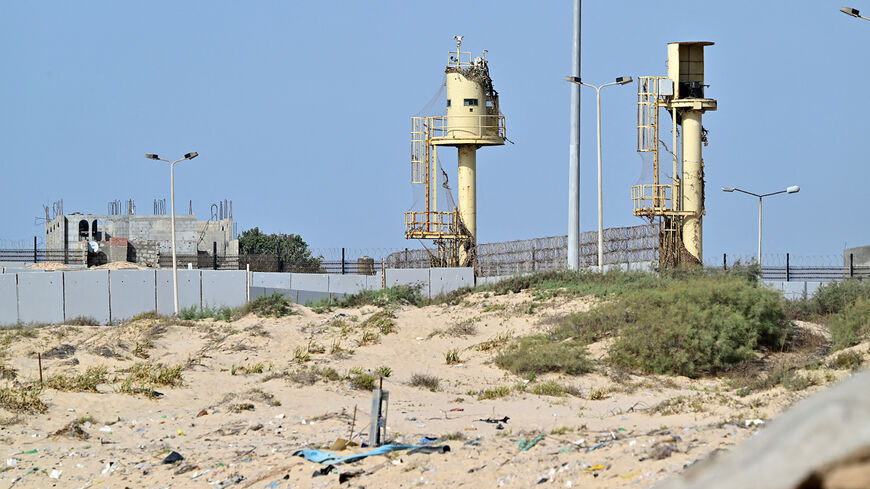What’s behind Egyptian commander’s visit to Gaza border amid Israel spat?
Lt. Gen. Ahmad Fathy Khalifa’s visit came in response to Israel demanding control of the Philadelphi Corridor, said one expert.

The chief of staff of Egypt’s armed forces inspected security conditions at the Egypt-Gaza border, known as the Philadelphi Corridor, on Thursday amid Israeli demands that it wants to remain in control of the strategic area as it battles Hamas.
Lt. Gen. Ahmad Fathy Khalifa “inspected security measures” while visiting with Egyptian forces at the Rafah border crossing. He emphasized his confidence in the armed forces at the border and their ability “not to succumb to rumors and talk that aim to undermine the Egyptian state,” according to a release from Egypt’s Ministry of Defense.
Khalifa “stressed that the main mission of the armed forces is to preserve the country’s borders on all strategic directions.”
Why now: The unexpected visit follows a week of heightened tensions surrounding the Philadelphi Corridor. On Monday evening, Israeli Prime Minister Benjamin Netanyahu insisted that Israel must maintain a military presence in the corridor.
Netanyahu doubled down on his statements on Wednesday, saying that the Israeli military would not withdraw from the corridor until phase two of any potential cease-fire deal. Hamas has demanded a full withdrawal of Israeli troops from Gaza, including the Philadelphi Corridor, throughout the cease-fire negotiations.
The original cease-fire deal, proposed by President Joe Biden, in May comprised three phases, the first being a six-week stretch in which Israel would withdraw from densely populated areas of Gaza and Israeli hostages would be released in exchange for Palestinian prisoners. The second phase was to be negotiated during the initial six-week cease-fire and included the release of all hostages and Israel’s full withdrawal from Gaza. The third and final phase was to focus on reconstruction of the Gaza Strip.
Now, the US cease-fire negotiating team is scrambling to put a new proposal on the table following Hamas’ killing of six hostages and Netanyahu’s stance on the corridor.
Why it matters: The Philadelphi Corridor, which was set up as a buffer zone in the 1978 Camp David Accords, has long been a point of contention between Egypt and Israel. In 2005, after Israel withdrew from Gaza, Egypt and the Palestinian Authority were charged with overseeing the narrow strip of land. In 2007, Hamas took control of Gaza and the border. Israel seized the Philadelphi Corridor in May and has since remained firm on its military presence in the area, saying that Hamas uses the corridor to smuggle weapons into Gaza.
Khaled Elgindy, a senior fellow at the Middle East Institute, said that Khalifa’s visit came in response to recent Israeli statements on the Philadelphi Corridor.
“I think it’s clearly a response to all of the talk about the Philadelphi Corridor and implying that Egypt is incapable of securing the border,” he told Al-Monitor. “My sense is this is an attempt by Egypt to show that they are serious about securing the border and have been, and that they are not the problem.”
According to Elgindy, the visit signals Egyptian opposition to Israeli control of the border.
“I also think it’s a way of underscoring Egyptian opposition to Israel remaining on the Gaza-Egypt border,” he said. “Egypt has said it would consider that a violation of its peace treaty with Israel and that they won’t allow it.”
Know more: Egypt is looking to protect key interests as it navigates the instability on its border. It does not want a “porous border” with arms and fighters going back and forth due to the security situation on the Sinai Peninsula, nor do they want an exodus of Palestinians from Gaza into Egypt, Elgindy said.
Egypt battled an insurgency in Sinai from the Islamic State, al-Qaeda and other Islamist groups for years. The conflict ended in an Egyptian military victory in early 2023, with a low-level insurgency continuing since then.
Days after Hamas’ Oct. 7 attack, Egyptian President Abdel Fattah al-Sisi said that Gazans must “remain on their land.”
The Egyptian government has domestic concerns about the border amid Khalifa’s visit due to widespread public anger at Israel over the war.
“They want to be able to assert Egyptian sovereignty. They don’t want to look like they are caving to the demands of the Israelis,” Elgindy said of the Egyptian view. “They need to project that for domestic consumption. It’s not a good look if they seem like they are being pushed around by Netanyahu.”
The Egyptian government has cracked down on protests about the Gaza war.









